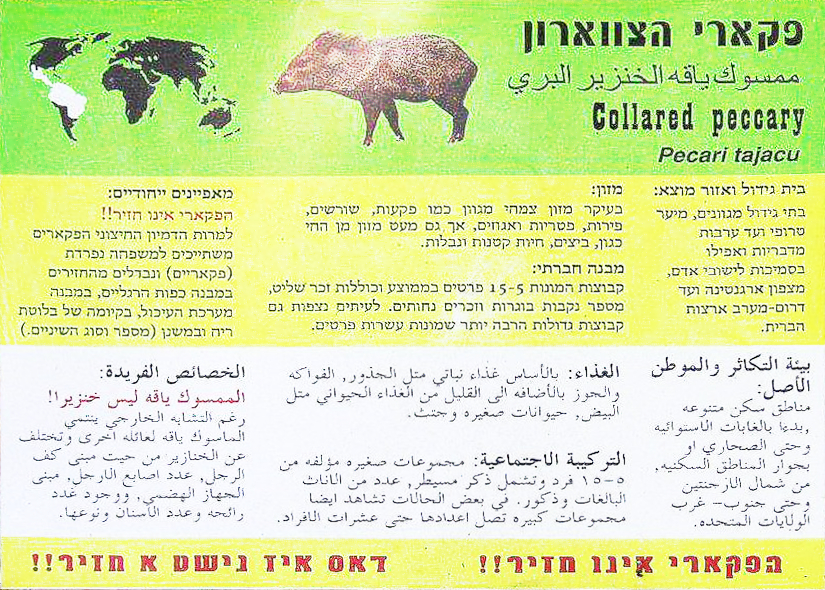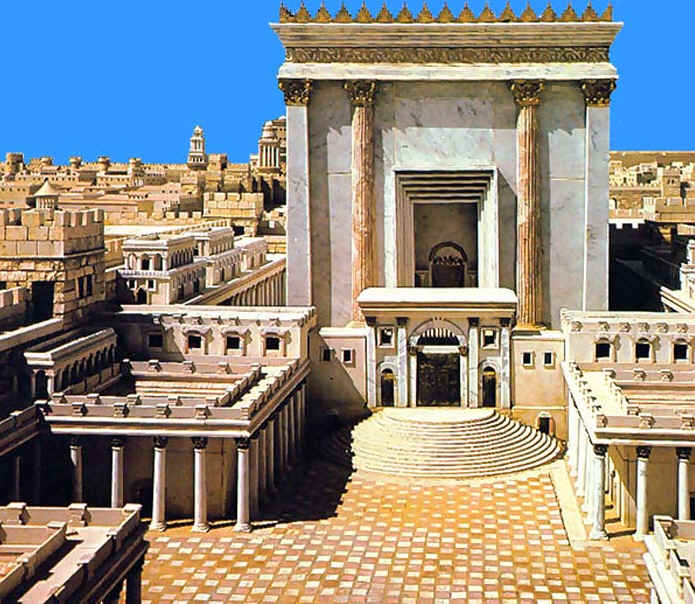
We Can Choose Our Direction
Having discussed whether animals are pure or impure, whether they are kosher to eat or not, the Torah now turns to discuss the purity and impurity of human beings. Yet there is a fundamental difference between the purity or impurity of man vs. animal. An animal is...

The Sign Has it Wrong
A friend took the attached photo at the enclosure for the collared peccary, a species native to Central and South America (as you can see on the map), in the Jerusalem Zoo. In red letters and in three languages, the sign declares: the peccary is not a pig!! There's...
Challenging the Obvious
Sometimes things can appear to be very obvious, yet the truth is just the opposite. Without looking deeper and turning to wise counsel, we could make a terrible mistake. Reality may be the opposite of what we perceive!
Without Credit
In this week's Torah reading, we begin the book of Leviticus, with the word "VaYikra", "And He called." G-d called out to Moshe, as He did every time He wanted to speak to Moshe or give a new Commandment. Rabbi Shlomo Yitzchaki (Rashi) tells us that this was a term of...

What are we Building, Anyways?
In this week’s reading, Moshe gathers the entire nation of Israel together. He says, now it’s time to build the Mishkan, the Tabernacle. Everyone with a giving heart should bring their gifts. But first, he tells them that they have to observe the Sabbath. “For six days you shall do the labor, but the seventh day shall be holy for you, a Sabbath of Sabbaths to G-d” [35:2].

A Little Less Chutzpah
In this week's reading, we're told that the Kohen Gadol, the High Priest, was to wear a Tzitz, a band of gold across his forehead. And the band said "Kadosh LaShem," Sanctified to G-d. The Talmud tells us that the Tzitz atoned for azus panim, literally "boldness of...



